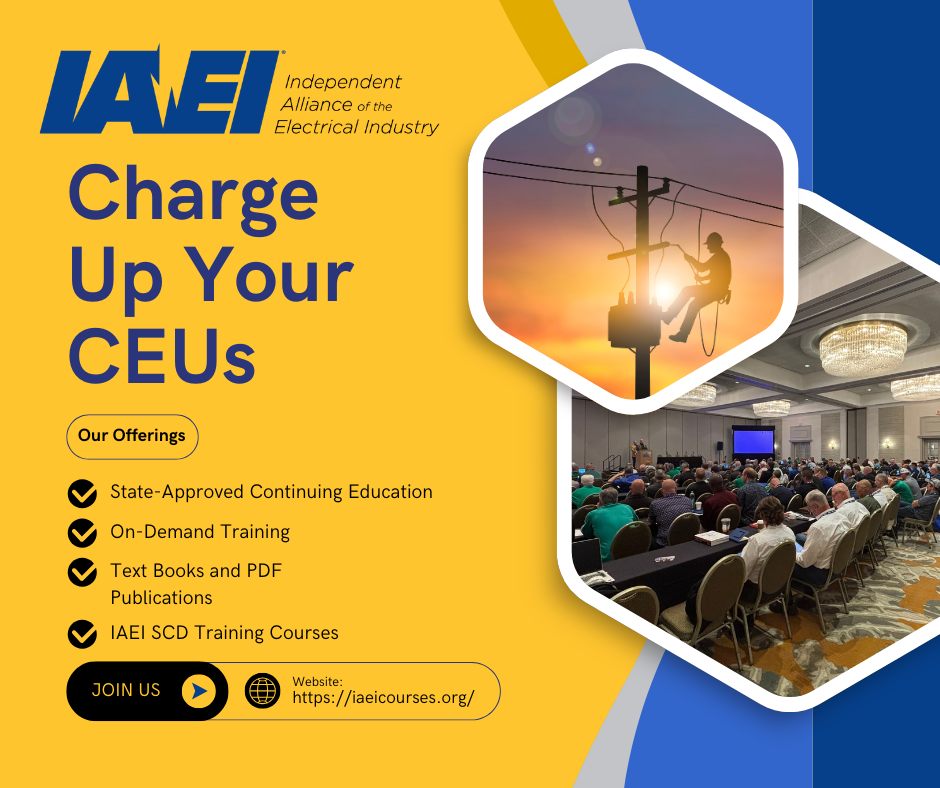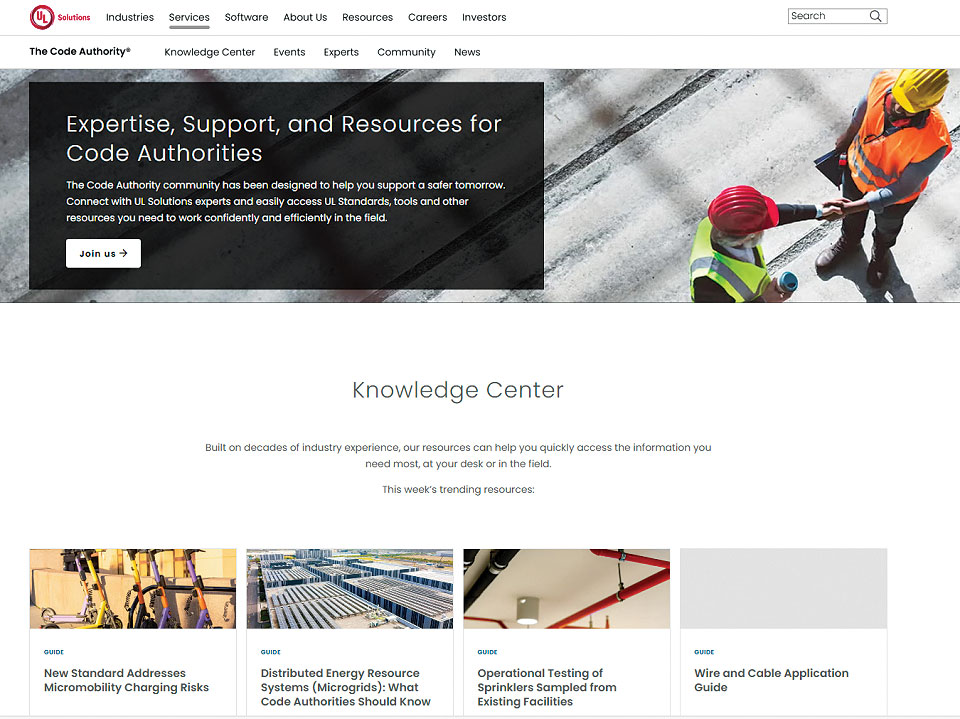The misuse of electrical energy can be dangerous to both people and property. Electrical equipment and systems installed, used, and maintained correctly have a proven record of safety. It is the misapplication and abuse of electrical equipment and materials that primarily create hazards. Not only during May, the designated Electrical Safety Month, but also every day of the year, attention should be given to promoting the safe use of electricity. All users of electrical products should become more aware of the need for their being alert for and being capable of recognizing many common electrical hazards.
Electricity has become so much a part of our lives, it is difficult to envision living without it. This beneficial form of energy is instrumental in making our lives easier and more enjoyable. It is evident that a greater effort must be made to educate users of electricity as to its proper use. Electricity is not visible and is not easily understood by those outside the industry. It is apparent that many have little idea as to how an electrical system works, its intended use, its limitations, and the hazards that exist when improperly used. This lack of knowledge is dangerous.
Safety principles associated with the use of electricity should become as ingrained in us as other commonly taught practices, such as when crossing a busy street or road, to stop and look before stepping into the crossing lane. While many ignore that commonly taught rule, most people are influenced by it and live more safely because of it. It is readily understood why street crossing rules are necessary because one can easily understand the results of being hit by an automobile. Unfortunately, in the use of electricity, hazards are not so obvious.
It may well be that a great opportunity is missed by not including well designed electrical safety training in grade schools with follow-up courses in advanced grades. If young people are properly taught, it is more likely that the basic principles will remain with them throughout life and be to their benefit. Passing out pamphlets on electrical hazards, giving occasional safety presentations, or similar activities are good, but the positive effects of those efforts are often minimal and brief. It may be time to develop a comprehensive plan to effectively teach consumers electrical safety.
Code Questions
Electrical contractors, designers, electricians, and inspectors frequently encounter situations in the field that raise questions as to if and how the electrical code applies. Many such questions become part of code discussion during IAEI section, chapter, and division meetings. Open discussion of these issues has proven to be an excellent method of sharing important information. It provides a platform for different views on the subject to be heard and for debate on the merits of those positions.
Requests for answers to these types of code questions are submitted to the IAEI headquarters office on a regular basis. IAEI staff works to process these questions as quickly as possible. The IAEI does not have a policy of issuing official interpretations on any electrical code. The process for handling those inquiries is to involve those people who represent the IAEI in the code development process. Those individuals have the unique position of being participants in processing code changes. Their participation involves having direct access to documentation supporting code changes and committee discussion involving the merits of those proposals. Code committee or code panel members are normally better prepared to respond to questions as this exposure gives them greater insight into the portions of the code associated with their committee or panel.
Questions involving the National Electrical Code are handled by current and former members of the NEC Code Making Panels. Items involving the Canadian Electrical Code are directed to individuals who are current or former members of the Part I Committee or subcommittees. This relationship generally provides an insight into the reasons why code proposals are adopted and the intent of the committee.
Information provided by these designated IAEI representatives in response to questions submitted is published in the “Focus on the Code” section of the IAEI News and will also be included on the IAEI web site, iaei.org. This process of handling code questions is designed to share information with all members and to provide a means whereby members can reply to the given answers if necessary. “Focus on the Code” is a popular section of the IAEI News and it is made possible by the work of code experts who provide the information and a dedicated staff who want to provide the best possible service to members.
Code related questions submitted to the IAEI should be in writing. If submitted electronically, they should be sent to iaei@iaei.org. Where submitted by fax, that number is 972-235-3855. Those sent through regular mail should be addressed to “Focus on the Code,” IAEI at PO Box 830848, Richardson, Texas 75083-0848.










Find Us on Socials